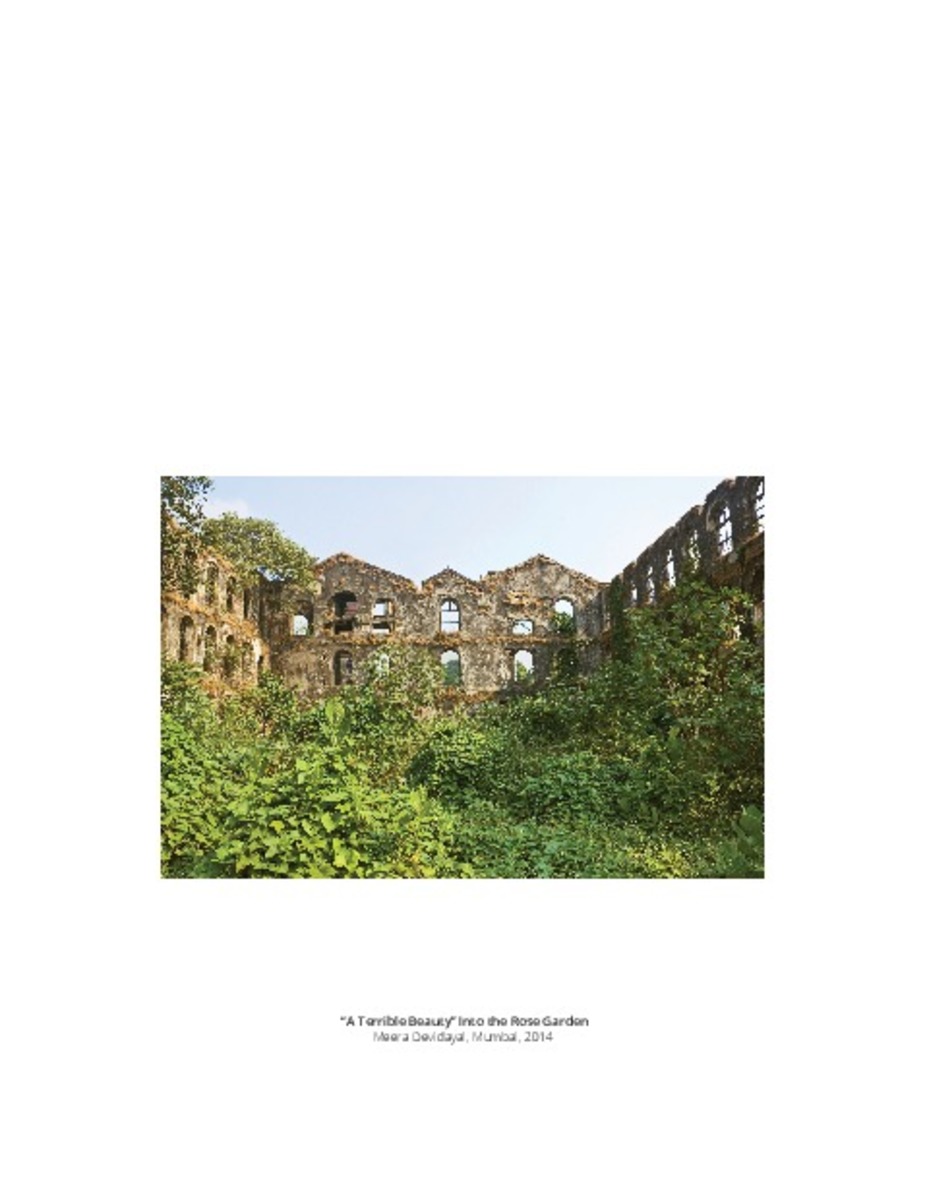Full metadata record
| DC Field | Value | Language |
|---|---|---|
| dc.creator | Woods, M. (Mary) | - |
| dc.date.accessioned | 2016-11-23T10:57:56Z | - |
| dc.date.available | 2016-11-23T10:57:56Z | - |
| dc.date.issued | 2016 | - |
| dc.identifier.citation | Woods, M. (2016) ""Photographing Urban Ruins of an Exploding City: Images of 21st- Century Mumbai"" En: Alcolea, R.A, Tárrago-Mingo, J., (eds.), en Congreso internacional: Inter photo arch ""Interacciones"", celebrado en Pamplona, los días 2 al 4 de Noviembre de 2016, (pp. 402-413) | es_ES |
| dc.identifier.isbn | 978-848081-518-5 | - |
| dc.identifier.uri | https://hdl.handle.net/10171/42350 | - |
| dc.description.abstract | Inspired by archaeology and the picturesque, writers, painters, and architects were drawn to real and imagined sites of urban ruin in the 17th and 18th centuries. In the 19th century photographers joined them there. There was also a craving for images of urban decay as counterweights to modernism’s obsession with the new during the 20th century. Today photographers Andrew Moore, Robert Polidori, and Camilo José Vergara autopsy the built remains of economic and natural disasters in shrinking cities like Detroit, Buffalo, and New Orleans. Celebrated in exhibitions and lavish publications, their images raise questions about so-called “ruin or disaster porn” created by outsiders. Here I focus instead on Meera Devidayal’s imagery of industrial ruins in Mumbai, an exploding metropolis of the global south. As a woman and long-time resident of the city she stands apart from the usual suspects of ruin photography in the West. Unlike these photographers, Devidayal has a deep personal connection to Indian textile mills; she explored and photographed them over a period of 2-3 years beginning in 2010.Engines of its modern industrial economy since the 1800s, the city’s mills, called “cathedrals of cotton”, have almost all been demolished for shopping malls and high-rise offices and luxury apartments, architectures of global aspiration. Today only a few mills remain; and most of these are derelict. Amidst landscapes of deindustrialization, she imagines new urban spaces and documents places marginalized men create for themselves there. Devidayal’s work underscores the potential of urban ruins in exploding as well as shrinking cities. Rooted in the city, architecture, and photography, her art is about the terrible beauty and human costs of a Mumbai simultaneously dying and exploding. It speaks to our need for understanding the hazards and opportunities of what the late architect Charles Correa called great cities but terrible places. | es_ES |
| dc.language.iso | eng | es_ES |
| dc.publisher | Servicio de Publicaciones Universidad de Navarra | es_ES |
| dc.rights | info:eu-repo/semantics/openAccess | es_ES |
| dc.subject | Textile mills | es_ES |
| dc.subject | Shrinking | es_ES |
| dc.subject | Ruins | es_ES |
| dc.subject | Post-industrialism | es_ES |
| dc.subject | Photography | es_ES |
| dc.subject | Mill lands | es_ES |
| dc.subject | Global south | es_ES |
| dc.subject | Exploding | es_ES |
| dc.subject | Deindustrialization | es_ES |
| dc.subject | Materias Investigacion::Arquitectura | es_ES |
| dc.title | Photographing Urban Ruins of an Exploding City: Images of 21st- Century Mumbai | es_ES |
| dc.type | info:eu-repo/semantics/article | es_ES |
Files in This Item:
Statistics and impact
Items in Dadun are protected by copyright, with all rights reserved, unless otherwise indicated.






